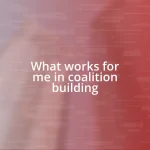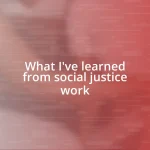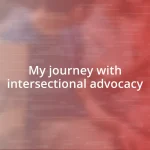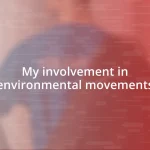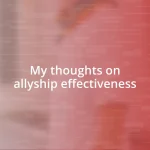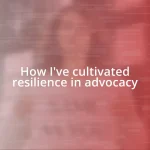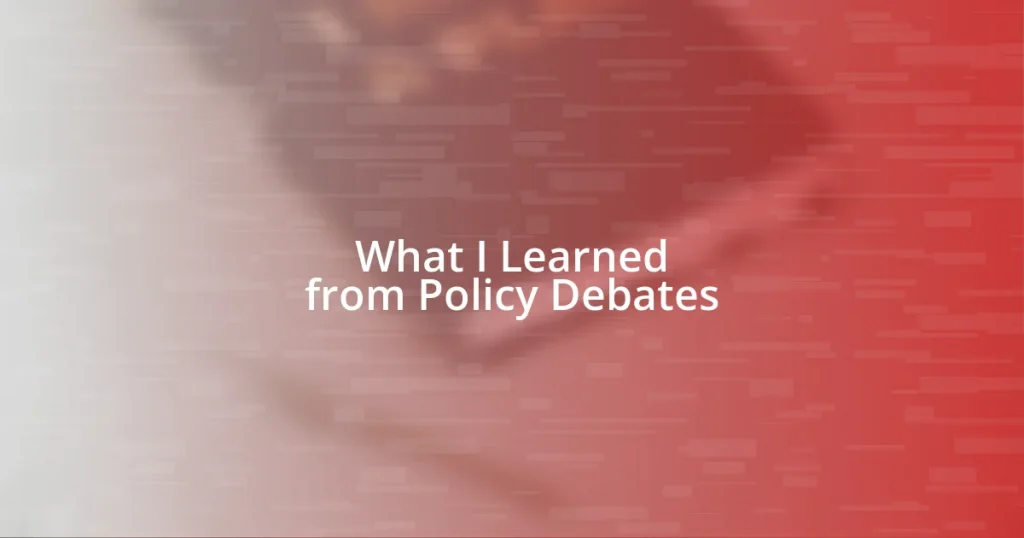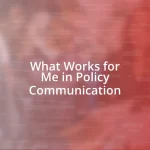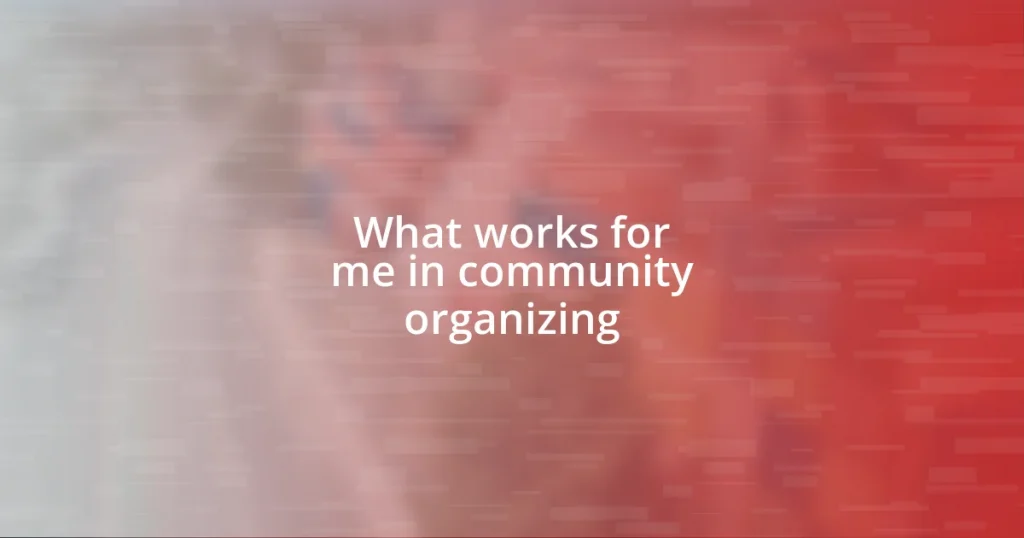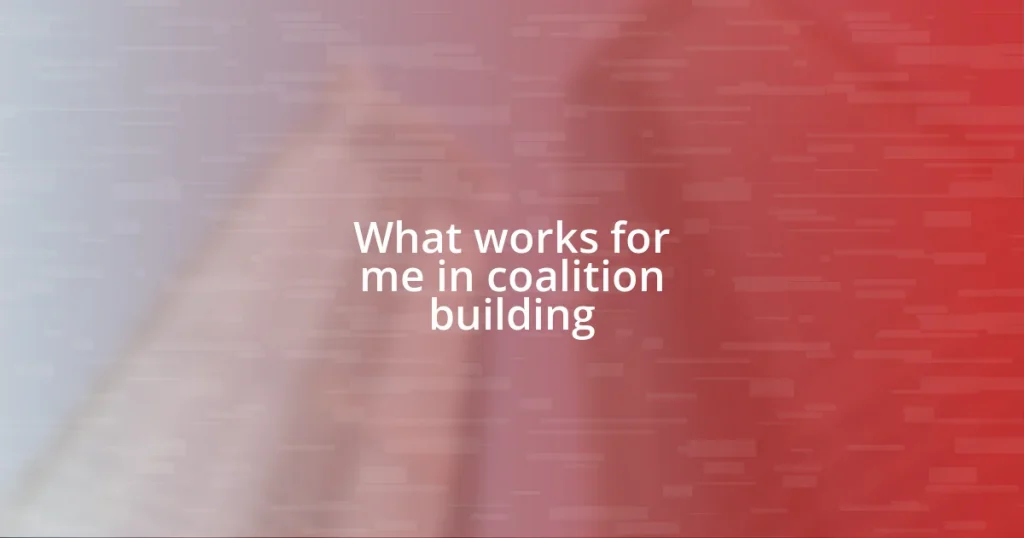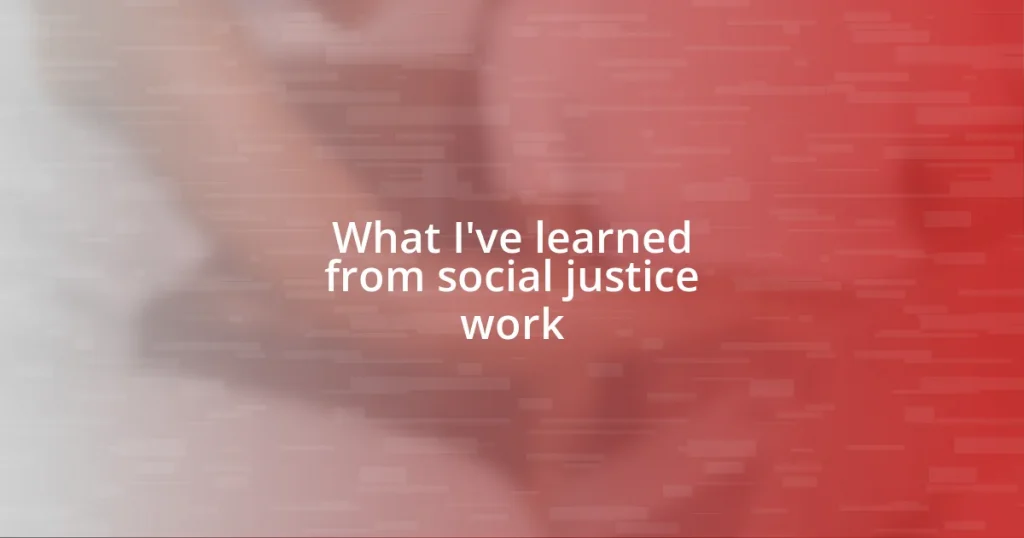Key takeaways:
- Engaging in policy debates enhances critical thinking, effective communication, and emotional intelligence, shaping personal interactions and professional conversations.
- Constructing compelling arguments involves a blend of factual evidence and emotional narratives, along with the ability to anticipate and address counterarguments respectfully.
- Applying debate skills in real-life situations fosters productive dialogues by actively listening, finding common ground, and validating differing perspectives.
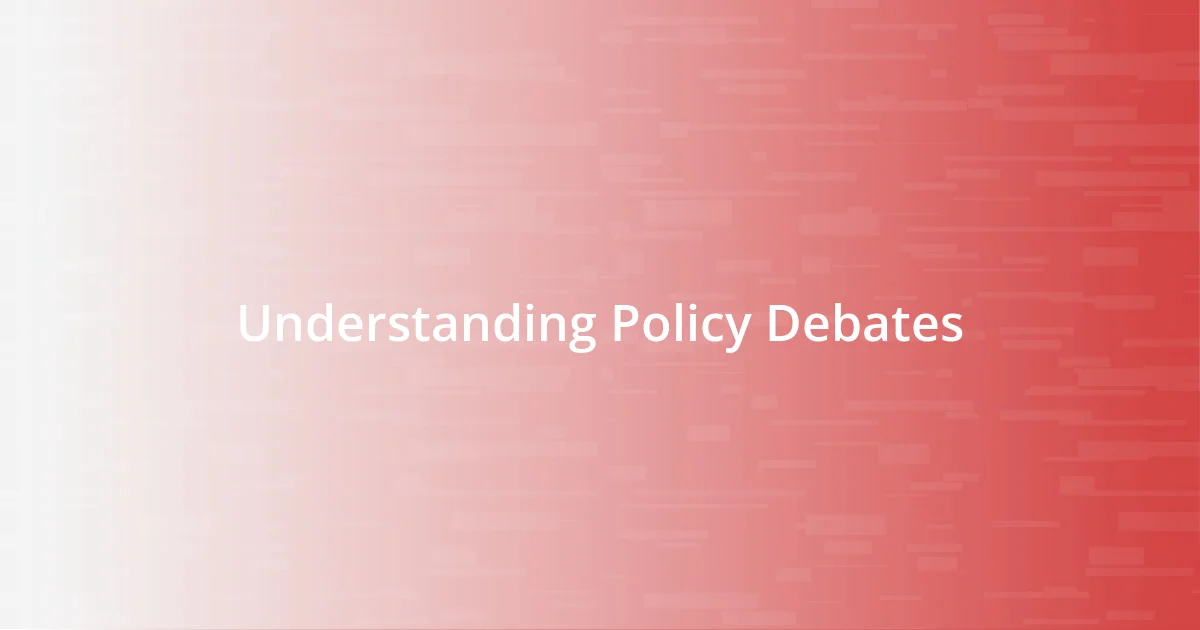
Understanding Policy Debates
When I first stepped into the world of policy debates, I was struck by how much they mirror real-life discussions. It’s fascinating to watch how individuals argue for policies that can significantly shape our society—policies that impact everything from education to healthcare. Have you ever paused to think about the weight behind those arguments? They carry not just facts, but emotions and values that resonate deeply on personal and communal levels.
One vivid experience stands out for me. During a particularly heated debate on climate policy, I felt the urgency in every argument. It wasn’t just statistics on temperature rises; it was about the future of our children and the legacy we leave behind. The intensity of that moment made me realize that policy debates aren’t just intellectual exercises—they’re deeply personal dialogues that reflect our beliefs and priorities.
As I’ve engaged more with these debates, I’ve learned that understanding the nuances is crucial. Each policy has layers of complexity that involve economic considerations, social justice, and ethical implications. I often ask myself, “How do these layers intersect in real life?” By digging deep into these questions, I find not only clarity but also a deeper connection to the issues that matter most to me and my community.
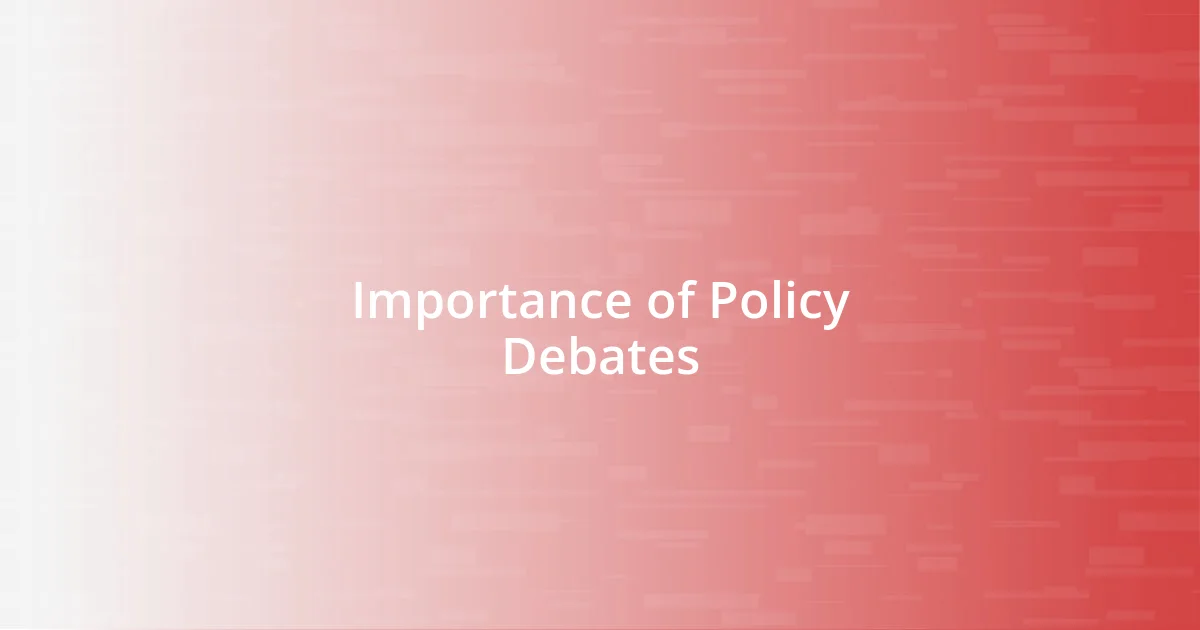
Importance of Policy Debates
Policy debates play a vital role in shaping public opinion and decision-making. I still remember the first time I participated in a debate about education reform. The passion in the room was palpable, and it struck me how each speaker was not just voicing opinions but representing the hopes and fears of countless individuals. This experience showed me that policy debates are platforms where voices intertwine, bringing forward experiences that influence collective outcomes.
The ability to articulate and defend varied perspectives is another significant aspect of policy debates. While engaging in discussions about healthcare policies, I often found myself standing my ground on points I deeply believed in. But I also learned to appreciate opposing arguments, which helped sharpen my own reasoning. This back-and-forth exchange highlighted that, through policy debates, we gain insight into the complexities of issues and, more importantly, the diverse experiences that shape our beliefs.
Moreover, engaging in policy debates fosters critical thinking and enhances analytical skills. I recall a debate focused on environmental regulations; I left the session not only with a stronger understanding of the policy issues but also better equipped to analyze multifaceted information. This development goes beyond just knowledge—it cultivates a mindset that encourages questioning the status quo and exploring new solutions.
| Aspect | Importance |
|---|---|
| Public Engagement | Fosters community involvement and voice in decision-making. |
| Critical Thinking | Enhances the ability to analyze and evaluate complex issues. |
| Diverse Perspectives | Encourages understanding and respect for different viewpoints. |
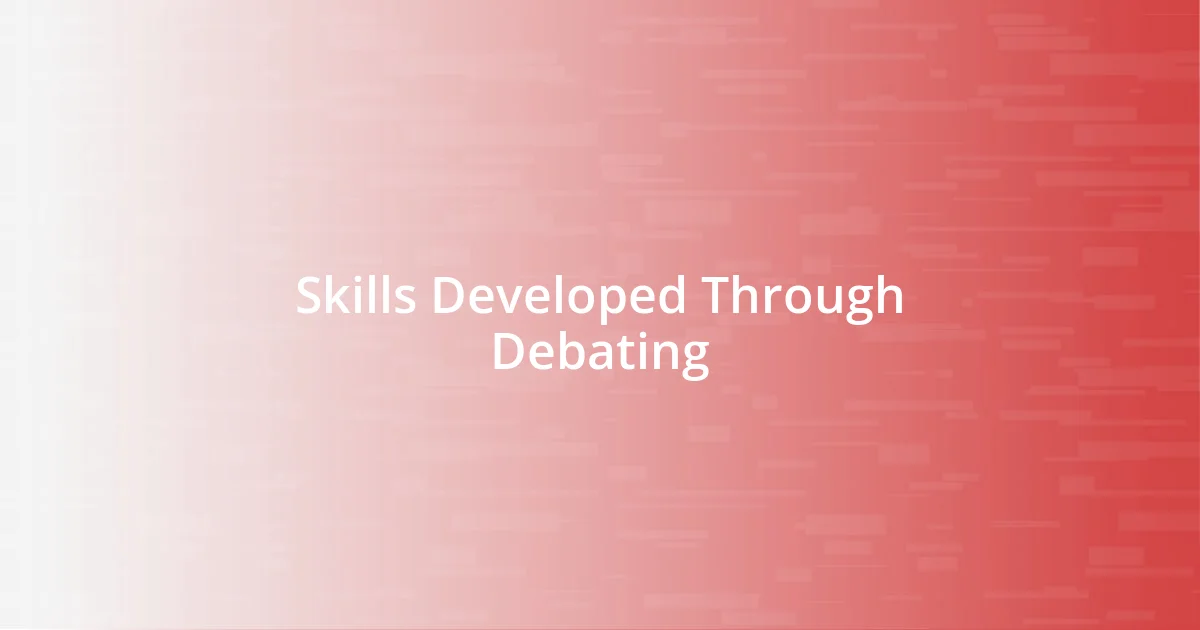
Skills Developed Through Debating
Engaging in policy debates has profoundly shaped my skill set over time. I never realized how much my communication skills would evolve until I found myself in a debate about immigration policy. It was an intense discussion where every word mattered, and I learned to convey my thoughts clearly and concisely. The pressure of defending my stance while respecting differing opinions pushed me to refine my ability to express complex ideas simply and effectively.
Through this journey, I’ve developed several key skills that are invaluable in both debate settings and everyday life:
- Effective Communication: I learned to articulate my thoughts under pressure, which has helped me in both personal and professional conversations.
- Critical Listening: I’ve gained the ability to truly hear and understand opposing viewpoints, allowing for richer, more meaningful discussions.
- Research Proficiency: Delving into various topics has strengthened my research skills, enabling me to pull relevant data quickly during debates.
- Emotional Intelligence: I’ve come to appreciate the emotional undertones in discussions, allowing for a more compassionate approach when addressing sensitive topics.
- Confidence: Each debate has gradually built my self-esteem, making me more comfortable in expressing my views in different forums.
These skills have not only enriched my debating experience but have also transformed how I engage with the world around me. Each debate is a stepping stone toward becoming a more well-rounded individual.
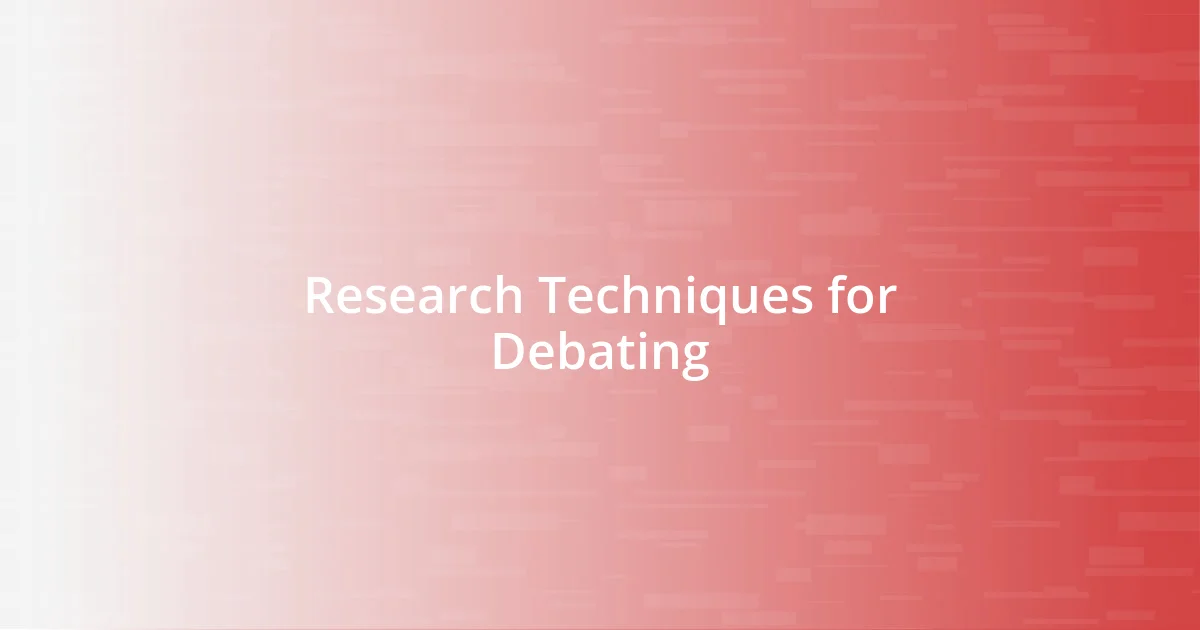
Research Techniques for Debating
When diving into research for debates, I often find it beneficial to start with credible databases and journals. For example, I once spent hours sifting through academic articles on climate change policies for a debate. The more I read, the clearer my understanding became, and it was exhilarating to uncover expert opinions and data that backed my arguments. Have you ever felt that rush when you stumble upon the perfect statistic? It’s like finding a hidden treasure that reinforces your stance.
Another technique I’ve found useful is sketching out mind maps to connect various viewpoints and information. This approach has really helped me visualize complex issues. During one debate, I created a mind map around healthcare reform, linking pros, cons, and counterarguments. This not only streamlined my thinking but also made my delivery during the debate much more fluid. It’s fascinating to see how visualizing information can enhance clarity, isn’t it?
Lastly, I can’t stress enough the importance of practicing with peers. Engaging in mock debates before the actual event has transformed my approach. For instance, during preparation for a policy debate on social issues, my friends challenged me with tough questions. This practice scenario not only fortified my arguments but also allowed me to empathize with opposing views, refining my analytical skills. How do you think your arguments would hold up under pressure? It’s an enlightening experience that can make all the difference when it counts the most.
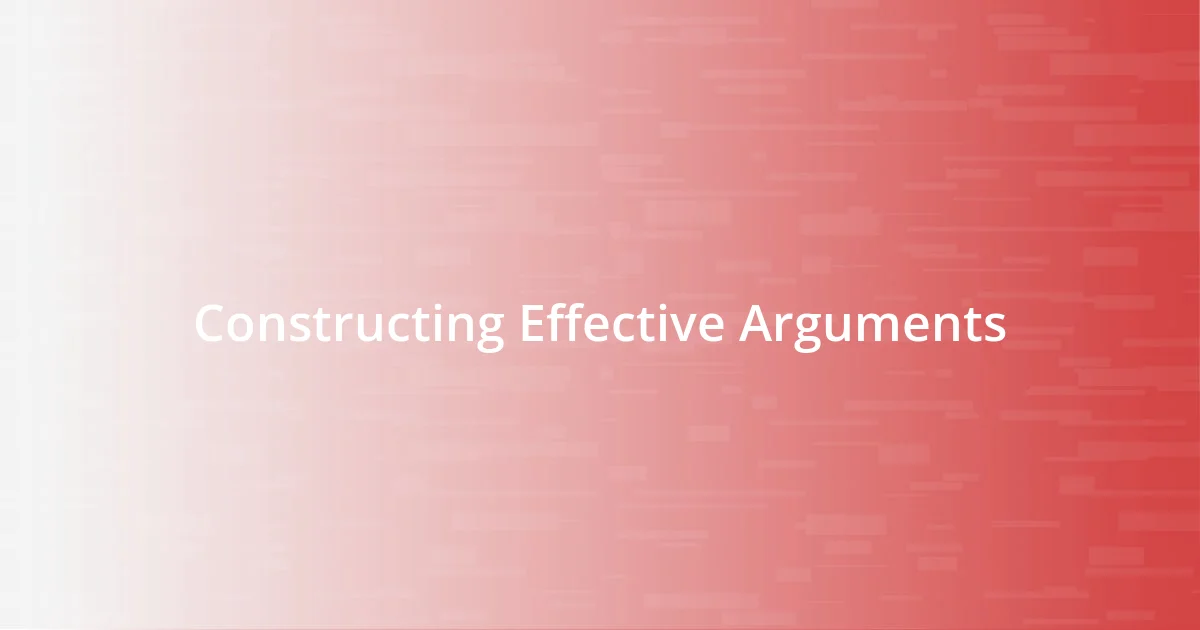
Constructing Effective Arguments
Constructing effective arguments is like building a bridge—every component needs to fit together perfectly. I recall a debate on education reform where I emphasized both factual evidence and emotional narratives. My argument wasn’t just driven by statistics but also by personal stories from educators I had spoken with. By weaving data and emotion together, I found that my point not only resonated with the audience but also painted a fuller picture of the impact of policy changes. Have you ever stumbled upon a personal story that completely changed the way you viewed a topic? That’s the power of connecting the abstract to the real world.
I’ve also learned that clarity is essential in making an argument compelling. During one memorable debate on criminal justice reform, I struggled to articulate a complex theory about systemic bias. After some reflection, I focused on breaking it down into simple concepts and analogies. This realization transformed my approach. Suddenly, my arguments became easier for the audience to digest, and I could see the lightbulbs go on as they grasped the ideas. Isn’t it remarkable how simplifying your message can lead to deeper understanding and engagement?
Another crucial aspect is anticipating counterarguments. I remember a heated debate on environmental regulations where I faced strong opposition. Instead of being defensive, I acknowledged their points, then responded with well-researched evidence that reinforced my position. This practice not only improved my argument’s robustness but also fostered a respectful exchange that encouraged a more thoughtful discussion. How often do you think acknowledging opposing viewpoints can strengthen your own argument? In my experience, it opens the door to deeper dialogue and better persuasion.
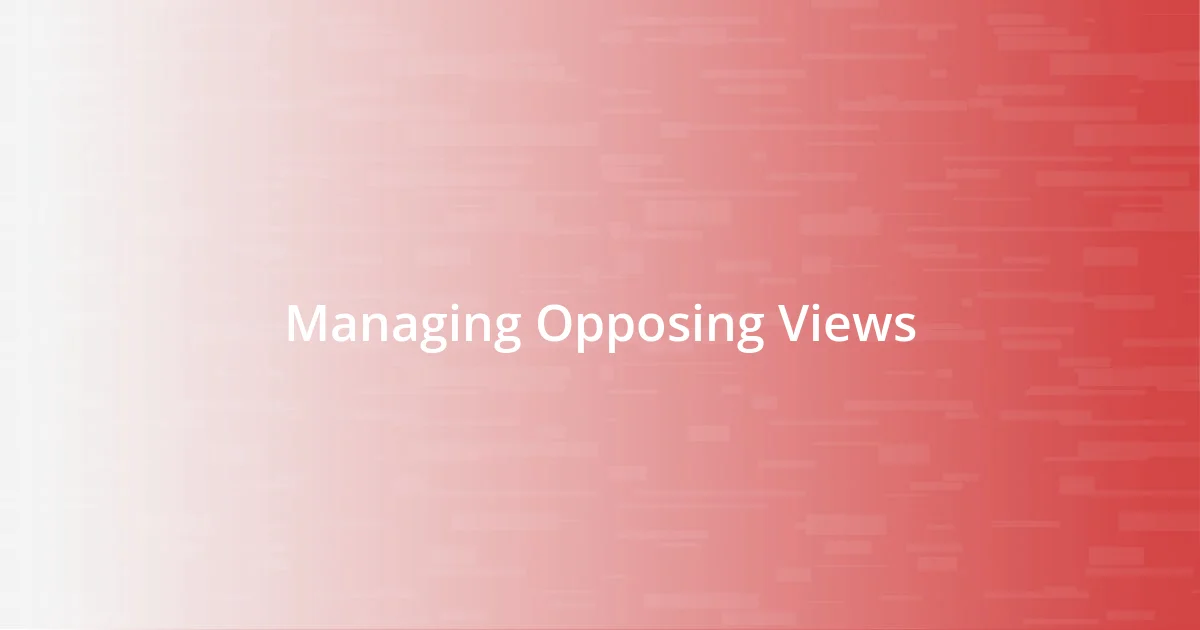
Managing Opposing Views
Managing opposing views is a nuanced skill that I’ve honed over countless debates. One time, while preparing for a discussion on immigration policy, I encountered a particularly passionate opponent whose arguments were compelling. Instead of dismissing their viewpoint, I made a conscious effort to listen actively. This process not only helped me understand their concerns but also demonstrated respect, which transformed the tone of the debate. Have you ever tried genuinely listening to an opposing view? It can turn a conflict into a collaboration.
Engaging with opposing views doesn’t just build rapport; it also sharpens your own arguments. During a debate about renewable energy, I debated someone who was a staunch advocate for fossil fuels. Instead of sticking solely to my script, I asked them questions that allowed them to articulate their stance. This back-and-forth revealed gaps in logic within their argument, which I then addressed with well-researched evidence. The exchange deepened both of our understandings; isn’t it fascinating how questioning can reveal layers of complexity in a topic?
Lastly, acknowledging opposing views can lead to surprising insights. In a discussion centered on technology’s impact on education, I initially felt strongly about the benefits. However, as I heard counterarguments regarding digital disparities, I realized there was more at stake than I had considered. This reflection didn’t just strengthen my approach; it sparked new ideas for my side of the argument. It’s a reminder that embracing different perspectives can enrich our understanding, fostering a more comprehensive debate. When was the last time you let an opposing view challenge and expand your own perspective?
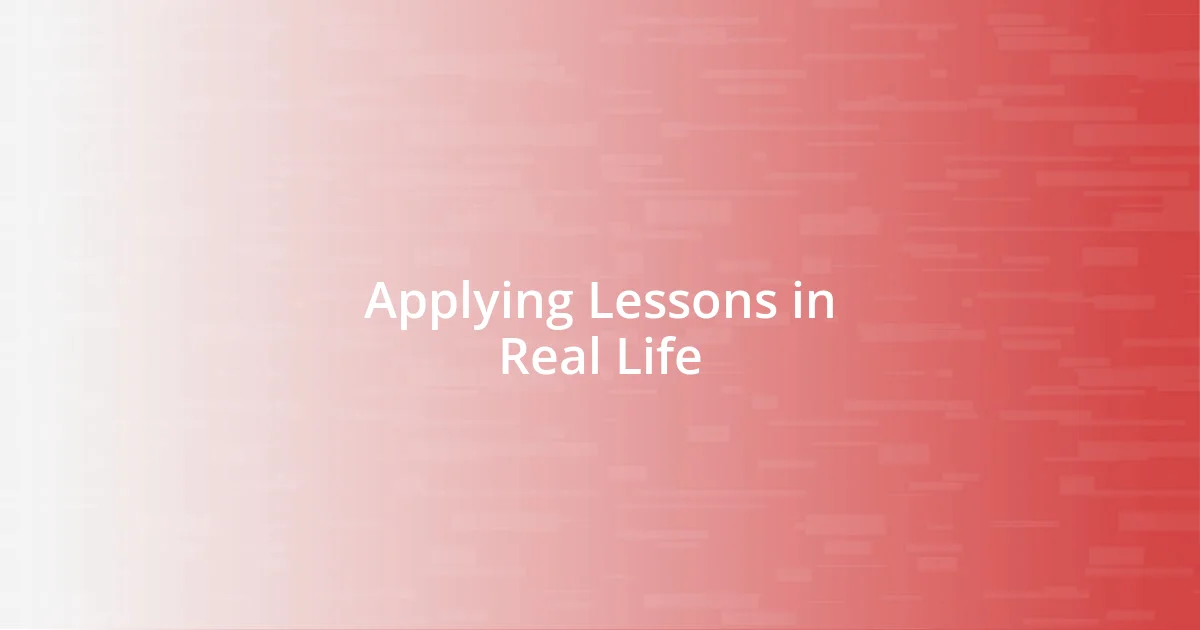
Applying Lessons in Real Life
The lessons learned from policy debates often extend beyond the debate floor and into everyday scenarios. For instance, I recall a time when a friend shared their frustrations about workplace policies. Instead of jumping into a debate, I applied my skills from the podium to listen actively and validate their feelings. This approach not only opened up a space for a productive conversation but also strengthened our friendship. Isn’t it fascinating how the same principles can apply in casual conversations?
I’ve also discovered that the art of framing an argument plays a vital role in real-life discussions. There was a moment when discussing local environmental initiatives with my community group that I remembered how vital it was to start with shared values. By grounding our conversation in common goals, we collectively navigated disagreements more smoothly. I was amazed by how this strategy shifted the energy from conflict to collaboration. Have you ever noticed how establishing common ground can dissolve tensions?
Moreover, the ability to anticipate objections isn’t limited to debates. I applied this skill at a family gathering when discussing differing views on climate change. By acknowledging my relatives’ concerns about economic impacts before they voiced them, I was able to steer the conversation towards potential solutions. This tactic not only made them feel heard but also allowed for a richer discussion. Reflecting on such moments, I realize how vital it is to stay open and prepared in all conversations, reducing defensiveness and fostering learning. How often do you practice this in your daily interactions?

